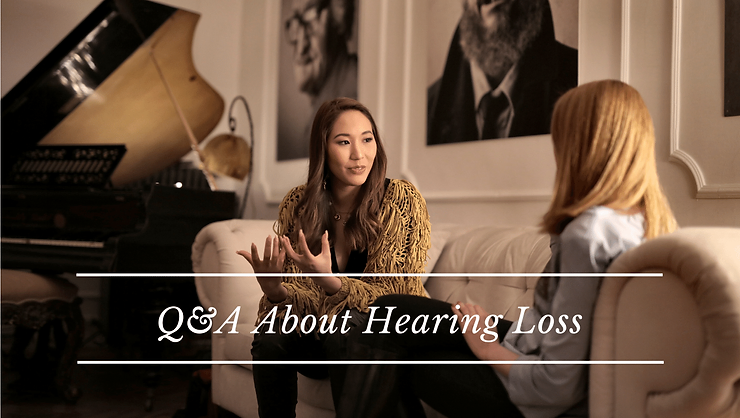
Oftentimes we see TV shows or movies that feature people with hearing loss, but not all of these depictions are accurate. Inaccuracies in popular culture can lead to misunderstandings in real life! Some of these beliefs are so ingrained that they are believed even by people with hearing loss.
Behind these myths, it’s time to set the record straight and discuss reality. Here are some of the most prevalent questions about hearing loss and our answers to each one.
If I continue to suffer hearing loss, will I finally become deaf?
This is not possible, mainly if your hearing loss is sensorineural, according to medical practitioners.
While this form of hearing loss is gradual and continues to worsen over time, hearing loss reaches a point in most patients where it will bottom out.
But living with untreated hearing loss, particularly in older adults, has been connected to higher rates of cognitive decline — scientists suggest that since they are used less often, this could be triggered by atrophy of the brain’s auditory processing centers. So, you should not postpone treatment if your hearing health provider suggests hearing aids.
Can I cure my hearing loss naturally?
There is no proof of any natural remedies for hearing loss.
The hair cells in our cochlea are responsible for turning sound waves into sound signals. These are then transferred to the brain to be processed and understood as sound. When these hair cells are damaged, they cannot be replaced, meaning that the hearing loss is permanent.
Damage to the hair cells may be attributed to aging, certain medications, noise exposure, and genetics, to name a few causes.
One of the most common and preventable causes is noise, so we should take steps to protect our hearing when faced with loud noises, both at work and during our leisure pursuits.
Should I use a cochlear implant for my hearing loss?
A cochlear implant is a treatment only used after it has been found that hearing aids have no benefit whatsoever.
In comparison to our normal acoustical hearing, cochlear implants are surgically implanted into the inner ear’s cochlea and function as an all-electrical hearing aid. Their use is primarily for children born without their hearing capacity.
Adults may be eligible for cochlear implants if they derive no benefit from hearing aids. However, in most cases, hearing aids are the best choice for most levels of hearing loss.
Do hearing aids fix my hearing loss?
Hearing aids are a treatment for hearing loss, not a remedy.
Although it returns much of the missing hearing, it is not an entirely flawless recreation of the sounds. Adjusting to these new sounds will take some time, and the brain needs to be taught to receive and process the new sounds properly.
It is a personal decision to get equipped with hearing aids, so it is necessary to consult a hearing care specialist who can advise which type of hearing aid suits your hearing and lifestyle needs best.
Do I need to wear two hearing aids?
It is a mistake to believe that you have one ‘good’ ear and one ‘bad’ ear.
The ‘good’ ear might be able to hear better, but the fact is that 90 percent of people with hearing loss experience hearing loss in both ears.
Part of why it is essential to wear two hearing aids is that your brain uses both ears’ auditory signals to make sense of the world around you. You can locate where sounds in the world come from when you hear from both ears, and you’ll end up with better spatial awareness.
Your ears are also responsible for hearing different things. Some sounds such as music are more receptive to the left ear, while the right ear is better at hearing speech. Treating hearing loss in both ears means that you can enjoy all the sounds around you.
If you have noticed changes in your hearing and are ready to take the next step towards treatment, contact us today! We will test your hearing and if a hearing loss is detected, we’ll help you choose a hearing aid that is right for your needs.
